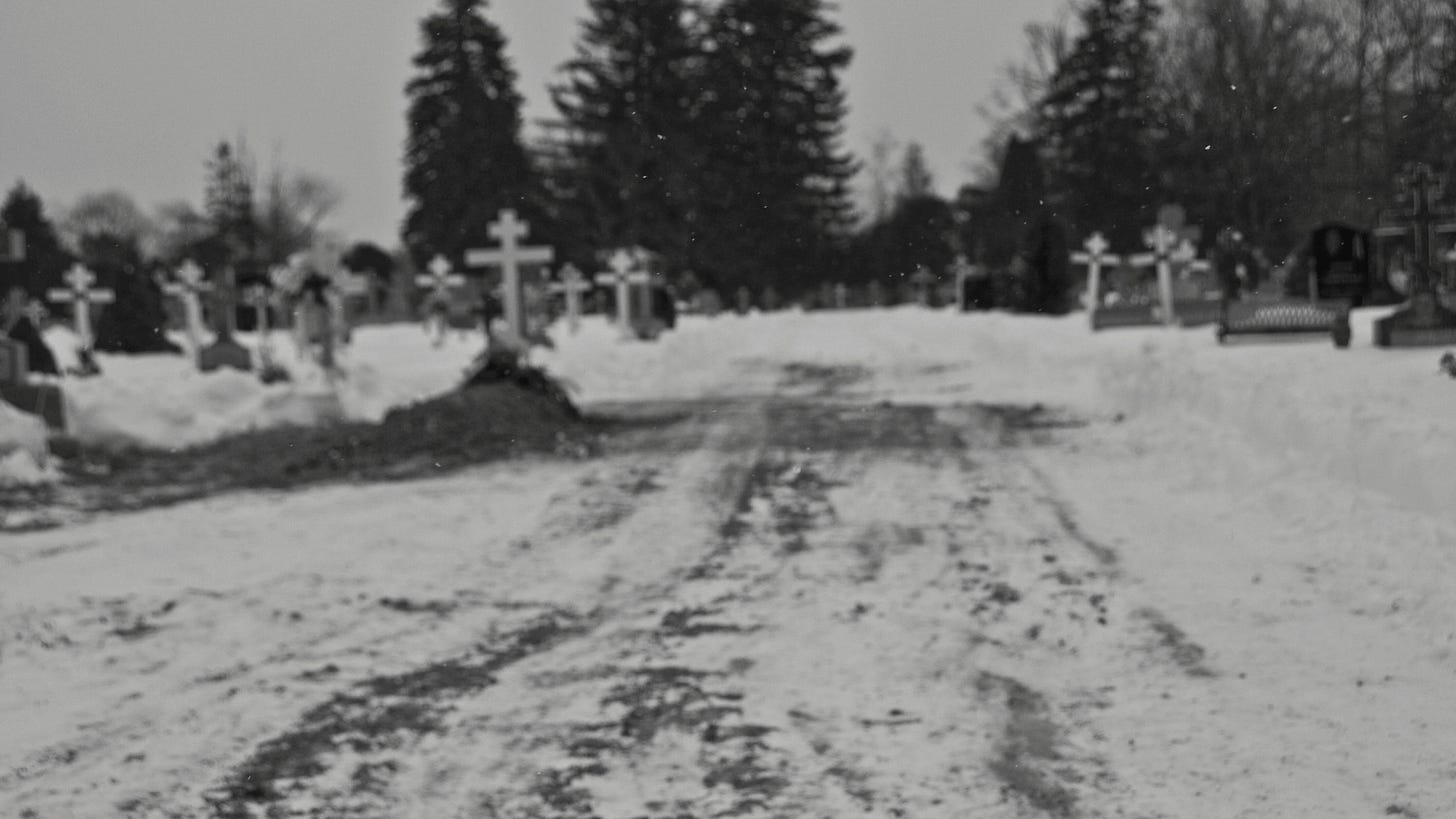Death Is Not a Gentleman
Death is not a gentleman. He comes without warning, showing no regard for the routines or circumstances of life. You could be asleep, awake, at home, in a car, at work, in the theater, or even reading this reflection. It makes no difference to death. Whatever you are doing, he is willing to interrupt.
However, perhaps some of the shock we experience isn’t solely because death is a spontaneous visitor. Perhaps it also stems from our lack of hospitality. When have we ever truly thought about death? We push him out of our minds, showing no regard for his existence. We live under a facade of immortality, piling up our “stuff” and building our little kingdoms. When death finally shows his face, we realize—far too late—that we haven’t even been introduced properly.
I propose that the Gospel has transformed death so profoundly that it is a Christian obligation not just to acknowledge death but to meditate on it. If we truly believe that conformity to the image of Christ is our destiny, we cannot avoid the fact that his life leads us to the foot of a bloody cross. Death is our destiny because it is through death that we are transfigured into glory. Therefore, we do ourselves a disservice when we meditate only on the life of the world to come; that is not the full picture. We cannot have the resurrection without the crucifixion. The glory of the resurrected Christ is possible only because he died. Thus, we must never look at the ascended Christ without also beholding the crucified Christ. This example must also apply to our own lives.
Memento Mori
The practice of meditating on death, known as memento mori, has a long history in the Church and bears the fruit of holiness in the lives of its practitioners. Think about it: if we truly lived with the awareness that death could come at any time, would our daily lives look the way they currently do? For most of us, the answer is “no.” Why? Because many of us don’t live with the intentionality that constant preparedness for death demands. If we did, there is much we would do that we don’t currently do, and much we currently do that we would stop. If we knew we had only hours to live, our attention would immediately turn to what truly matters—things like family, friends, and our eternal destiny.
Personally, if I knew I had only moments left to live, this is what would change: I would stop my embarrassing habit of half-listening to my beloved wife, consumed with selfish thoughts about my own ambitions. I would call my parents and siblings, asking about their lives and listening deeply, delighting in their words and experiences as if they were my own. I would pray unceasingly, repenting of my sins without pride holding me back from perfect honesty. I would go outside to behold the beauty of creation. The world around me would become vivid beyond words, its sounds louder than any distracting thought. Living like this would make it obvious what truly matters and what does not. There would be no need for deliberation; it would simply be clear.
Sadly, I don’t live like this. I imagine most of us don’t either. Despite the reality that we could have only moments left, we don’t truly believe it. We wake up expecting breath in our lungs. We get into vehicles expecting safe arrivals. We sit with family expecting to see them again. Some might call this “trust in God’s goodness.” I call it pride. By living this way, we forget the necessity of the cross. In some sense, we even forget the resurrection. We grow content in our fallenness, treating this life as though it were the age to come. This enchantment leads to a tragic inability to cope with death. We flee from it and refuse to face it. But it doesn’t have to be this way.
Death Transformed
If we lived with the intentionality I described earlier, everything would change. Many assume that meditating on death will lead to unceasing sorrow. On the contrary, when we confront death, it loses the power that ignoring it gives. By staring death in the face as our Lord did, we see its power swallowed up in God’s eternal life. Death becomes nothing more than a doorway—even an adventure. This is why we Christians can call the day Christ died “Good Friday.” It is not because death is good in itself that we speak of it this way, but because death has been transformed by the Lord of life into something good. Don’t we also want our death to be good? We cannot wish for this while keeping death far from our senses. As stated earlier, we cannot grasp the promise and glory of resurrection without first looking at the cross.
Therefore, brothers and sisters, I urge you to make the practice of memento mori a regular part of your life, so that death may never catch you unprepared. May we prepare ourselves for a good death—a death that reflects the glory of our Savior’s cross and resurrection. And may meditating on death transform the life we are given now, granting us the intentionality and holiness to take nothing precious for granted, while at the same time ridding ourselves of all that lulls us into complacency. Let us no longer live as terrified beings, avoiding our unavoidable destiny. Instead, let us embrace it as the necessary path to life.






MEMORY ETERNAL! 🕯️
Grand Mothers are a wonderful blessing....
Absolutely Apt Brother Jonah! I can relate as I lost my Father in 2021. May the Holy Spirit be our Comforter. I joined substack because of YOU. I thank God for your life & ministry especially on YouTube (TMCP)🙏 You introduced me to Anglo-Catholicism for which I am profoundly indebted! Much Love, Respect & Appreciation 😇